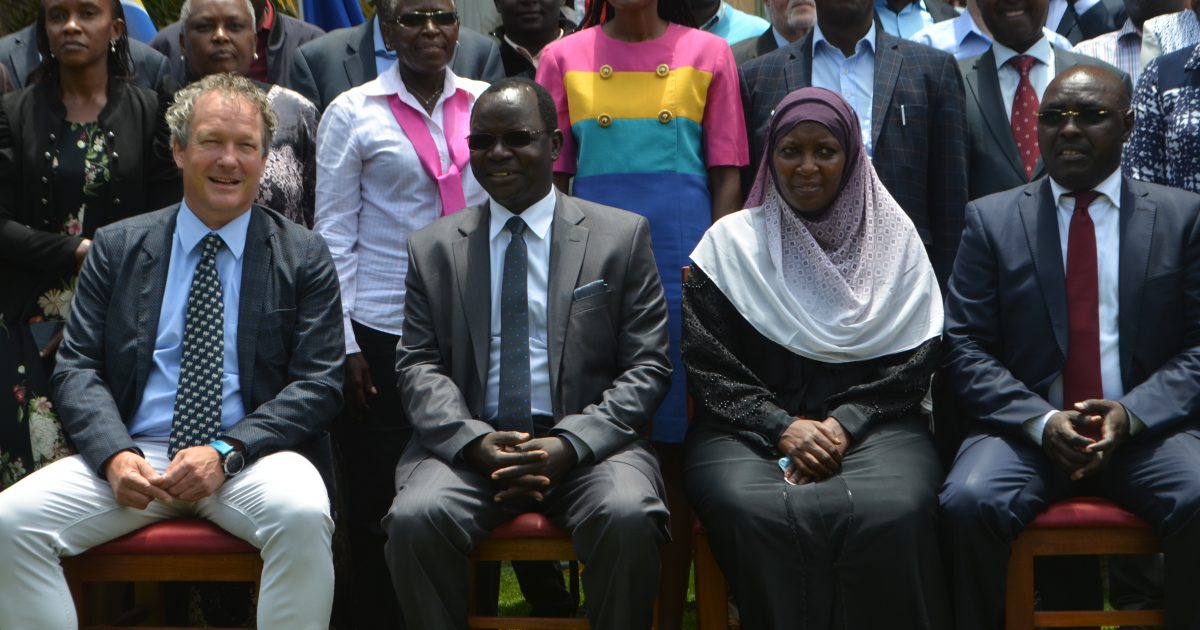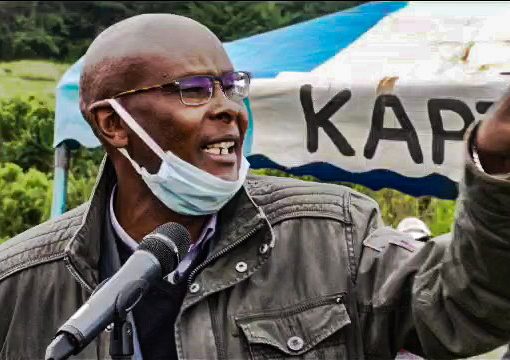The energy sector in Kenya has gotten a shot in the arm after the Energy Ministry launched the Sustainable Energy Technical Assistance (SETA) project, for institutional capacity development.
Funded by the European Union, the SETA Project will support 20 counties to finalise their County Energy Plans in alignment with the Integrated National Energy Planning Framework and facilitate the development and implementation of up to 15 renewable energy projects in the country.
The event was held in Meru County and graced by stakeholders from National and County Governments, civil society, and the private sector.
According to a speech read by Ms Kula Hache on behalf of the Energy Principal Secretary, Maj. Gen. (Rtd). Dr. Gordon O. Kihalangwa, SETA is designed to address the sector’s capacity gaps identified within the Sustainable Energy for All (SEforALL) Action Agenda (2016).
This is with specific reference to access, efficiency and renewable sources to ensure an efficient, climate, and environmentally friendly energy services that are accessible to all Kenyans.
Kihalangwa appreciated the EU support through SETA, amounting to Sh433 million (Euros 3.4 million), as well as creating time to participate in the launch of the project.
“I would like to call upon the Counties to take seriously the process of preparing the Energy Plans as they are critical instruments for accessing resources from The National Treasury as well as development partners,” said Kihalangwa.
He at the same time urged County Executive Officers in charge of energy to work with line ministries, private sector, civil society, and other partners in their respective counties to develop a robust framework for energy planning that effectively links with Integrated National Energy Planning (INEP) at the national level.
He added, “I also wish to emphasize the need for Counties to prioritize clean cooking and gender mainstreaming in their county energy plans to reduce the 90 percent reliance on solid biomass fuels, and the three-stone fireplace in rural areas.
Council of Governors (CoG) Energy, Transport and Infrastructure Committee Chair, Professor John Lonyangapuo, noted that the county governments are undertaking physical planning relating to energy resources, developing and implementing disaster management plans, facilitating the demand for energy, and provision of land and rights, a way for energy infrastructure.
“It is my hope that the project will enable Counties to come up with realistic energy plans as envisaged in the Energy Act,” he said.
Prof Lonyangapuo exuded confidence that the project will emerge as one of the best practices that will set the pace for other countries to learn from.
“The desire of the Council of Governors is that the Ministry will continue to support Counties through other initiatives in the energy sector that are geared towards responding to the needs of the mwananchi,” said Lonyangapuo.
He congratulated the Ministry for spearheading the initiative adding that the CoG anticipates that it will benefit the citizenry to ensure delivery of the necessary services as required by the Constitution, as well as work hand in hand with County Governments in ensuring the success of the project.
“I urge all stakeholders present today to aim at working together for the good of devolution. We should collaborate and cooperate as we continue to empower County Governments to deliver services to Kenyans. The CoG remains open to partnerships so that together, we can deliver the promise of devolution to all Kenyans,” said the Chair, adding, the project was timely and had come at a time when the world was focusing on mitigating the impact of climate change.
“I have no doubt that the stakeholders here today will develop a commendable document. This should not be the end of this project since we still have a lot to do to provide clean and sustainable energy to our population,” he said.
“We are supporting partners to increase the capacity of county and national government energy actors to adopt a more inclusive and integrated planning approach. Through this project, we hope to influence a system change; away from a wish list to real priorities and integrated solutions that will enable increased access to sustainable and reliable energy for households and MSMEs in Kenya,” said Martin Andersen, the Head of Infrastructure, Energy and Digitalisation Section, European Union Delegation.
By Dickson Mwiti



